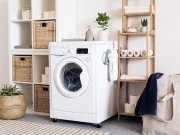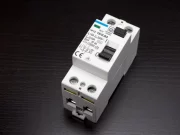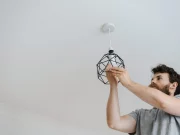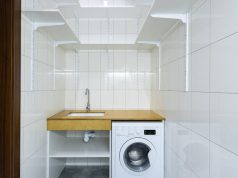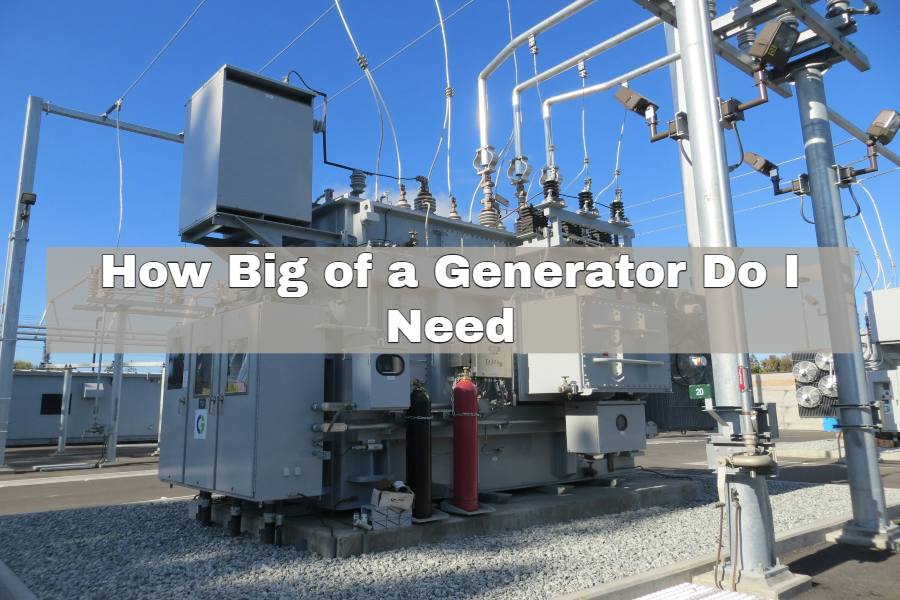
To determine the size of generator you need, calculate the total wattage of appliances and equipment you wish to power. Choose a generator with a higher output than your calculated total to ensure adequate power supply.
Choosing the right generator for your power needs is essential. Generators come in various sizes, tailored to provide electricity during power outages, for outdoor activities, or for construction sites. The key is to compile a list of all the devices you’ll need to power simultaneously and to sum their wattage requirements.
This calculation guides you towards the generator capacity you’ll need. Remember, always pick a generator with a slightly higher wattage rating than your total needs to handle additional loads or any unforeseen power demands. Opting for a generator with the right power output ensures efficiency, longevity, and reliability, securing your energy needs in any situation.
Essential Factors To Consider
Choosing the right generator size is not a guess game. It requires understanding key factors. Knowing what to consider ensures a reliable power source for your needs. Here are essential factors to ponder.
Assessing Your Power Needs
Before deciding on a generator, pinpoint your exact power needs. Start by listing all appliances and devices you plan to power. This includes everything from lights and fridges to computers and medical equipment. Each item has a specific power rating, usually found on a label or in the manual. Combine these to calculate your total power requirement.
- Make a list: Write down all electrical equipment.
- Check ratings: Note down wattage for each item.
- Calculate: Add up all wattages for a total.
Understanding Watts And Kilowatts
Generators are usually rated in watts (W) or kilowatts (kW). One kilowatt equals one thousand watts. The power requirement of devices is also in watts or kilowatts. Start by converting all power needs into the same unit for an easier total calculation.
| Device | Watts (W) | Kilowatts (kW) |
|---|---|---|
| Light Bulb | 60 | 0.06 |
| Refrigerator | 700 | 0.7 |
| Space Heater | 1500 | 1.5 |
To find the right generator size, add all kilowatts together. Choose a generator that offers a bit more than this total. This ensures it can handle the load reliably.
Types Of Generators
Choosing the right generator involves understanding different types. Generators come in various forms, each suitable for specific needs. This guide highlights three main types: Portable, Standby, and Inverter Generators. Knowing the differences can ensure a perfect match for power requirements.
Portable Generators
A Portable Generator is ideal for on-the-go power needs. It is perfect for camping or job sites. Users can move it easily due to its compact design. Here’s a quick rundown:
- Power Range: Typically 1,000-10,000 watts.
- Fuel: Gasoline, diesel, or propane.
- Use Cases: Emergency power, outdoor events.
Choose a portable generator based on the power needed for essential appliances during an outage.
Standby Generators
A Standby Generator offers peace of mind at home. It activates automatically during power loss. Standby generators can handle a home’s entire energy load. Key features include:
- Power Range: Around 7,000-20,000+ watts.
- Fuel: Natural gas or propane; connects to existing lines.
- Use Cases: Full-home power, essential for areas with frequent outages.
Standby generators are a hands-off solution for uninterrupted power supply.
Inverter Generators
An Inverter Generator provides clean energy for sensitive electronics. It is quiet and efficient compared to traditional portable generators. Highlights of inverter generators:
- Power Range: About 1,000-4,000 watts.
- Fuel: Usually gasoline; some models offer dual fuel options.
- Use Cases: Electronics, smaller appliances, travel.
Inverter generators suit modern devices that need stable power.
Calculating Your Specific Requirements
Choosing the right generator size is crucial for your power needs. You need one that fits your specific requirements. A generator too small may leave you in the dark. One too big can waste money and energy. Calculate your specific requirements for the perfect fit.
Tools For Precise Calculation
Determining the right generator size is key to powering your home or business. Use online wattage calculators for an estimate. List each device you’ll power with the generator. Look for the starting and running wattage. Add all these numbers up. This total will give you your wattage requirement.
Prioritize Your Appliances
- Essential appliances like refrigerators and lights go first.
- Consider comfort: add air conditioners or heaters if needed.
- Don’t forget about devices like computers and chargers.
Totaling Energy Consumption
Once you have your list, it’s time to do the math. Look at the labels on your appliances for wattage. Some big items have a ‘starting’ and ‘running’ wattage:
| Appliance | Starting Wattage | Running Wattage |
|---|---|---|
| Refrigerator | 2200 | 700 |
| Sump Pump | 1300 | 800 |
| Window AC | 1800 | 1200 |
Add together all the running wattages. Then, add the highest starting wattage to this total. This will give you the overall wattage you need from a generator.

Credit: www.amazon.com
Impact Of Over Or Under-sizing
Deciding on the right size for a generator is crucial. Both over-sizing and under-sizing bring challenges. Understanding these impacts ensures the best fit for your power needs.
Risks Of An Underpowered Generator
An underpowered generator can’t handle the demand, leading to several issues. Here are key risks of going too small:
- Continuous Overload: Pushing a generator beyond its capacity risks damage and shorter lifespan.
- Insufficient Power: Important systems might fail without enough power, especially during emergencies.
- Inefficiency: It may run at peak capacity constantly, leading to excessive wear and poor fuel efficiency.
Drawbacks Of Excessive Capacity
Bigger isn’t always better. Here’s why too much power can be a problem:
- Higher Initial Cost: Larger generators cost more upfront.
- Increased Operating Costs: They consume more fuel even when load is light, inflating expenses.
- Lower Efficiency: Running at low capacity can lead to wet stacking and added maintenance.
Practical Tips For Generator Sizing
Finding the right generator size is crucial for your power needs.
Too small and it won’t cope; too large could mean wasted resources.
Let’s dive into tips that help pinpoint the perfect size.
Seek Professional Advice
Getting the size right is tricky without expert knowledge.
- An electrician can assess your needs accurately.
- They’ll consider every appliance and suggest the best option.
Consider Future Power Needs
Think about not just today, but the future too.
Upgrades or additional appliances can increase power demand.
- Choose a generator that accommodates potential growth.
- Planning ahead ensures longevity and relevance.
Factor In Location And Climate
Your setting impacts the generator size needed.
Extreme temperatures demand more from your generator.
| Climate | Size Adjustment |
|---|---|
| Colder Regions | Increased capacity for heating |
| Hotter Regions | More power for cooling |
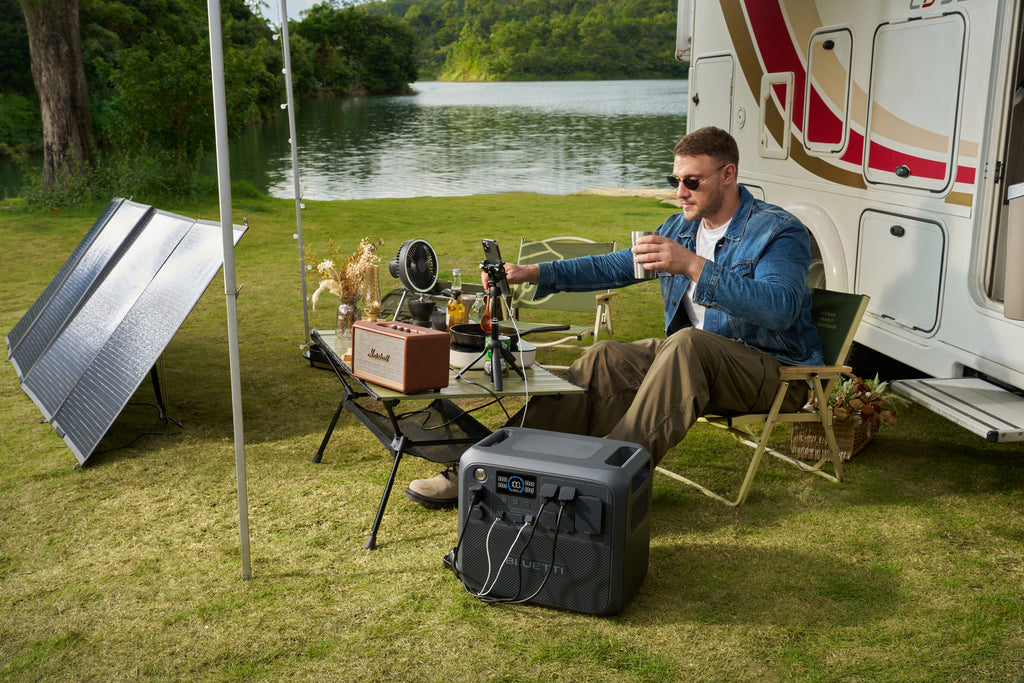
Credit: www.bluettipower.com
Frequently Asked Questions On How Big Of A Generator Do I Need
How Big Of A Generator Do I Need To Run A House?
To run a typical house, you’ll need a generator between 5,000 to 7,500 watts. Assess your energy needs based on appliances and backup requirements to choose the right size.
How Big Of A Generator Do I Need For A 2500 Square Foot House?
To power a 2500 square foot house, you typically need a generator ranging from 5,000 to 7,500 watts. Choose a larger capacity for more appliances or high-demand usage.
How Big Of A House Will A 22kw Generator Run?
A 22kw generator can typically power a medium to large home up to 3,000 square feet with essential appliances and systems running smoothly.
What Can A 3500 Watt Generator Run?
A 3500 watt generator can power multiple small appliances, such as fridges, TVs, and microwaves, or one larger appliance, like a window air conditioner or furnace.
Conclusion
Selecting the right generator size is crucial for your power needs. With the information covered, you’re now equipped to make an informed choice. Remember that wattage requirements and safety should guide your decision. Don’t hesitate to consult with a professional if you’re unsure.
Embrace the confidence that comes with preparedness and choose a generator that will serve you reliably.






